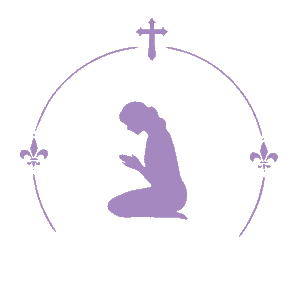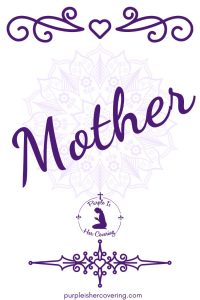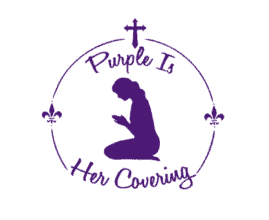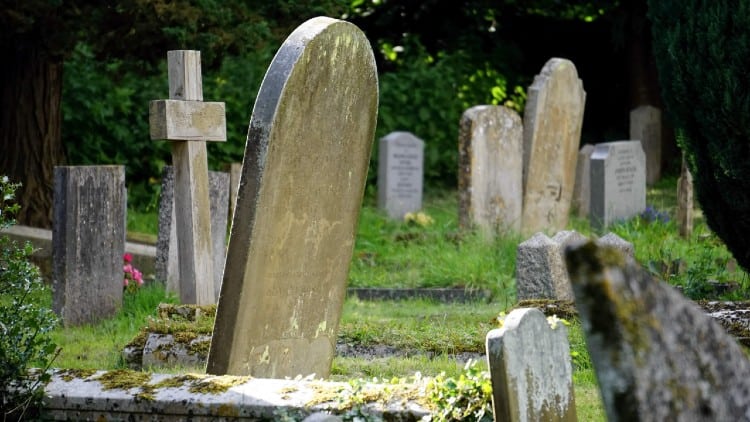- Ever since I lost a child to miscarriage, it became very important to me to find things that help me grieve and heal afterward. Though my life journey has had it’s ups and downs, I don’t think I have ever experienced pain like having a miscarriage. Unfortunately recently I lost a second child to miscarriage and went through the process again. I chose to take this opportunity to compile a list of tips to reference that makes it easier to cope after losing your child.
- You can read more about my previous pregnancies and infertility journey here.
Unsure of what to do during a critical and emotional time after miscarriage?
- I always have great excitement walking into an OB appointment to see how my baby has grown or if my levels have gone up. Leaving the hospital after finding out that my baby does not have a heartbeat or my levels have dropped was devastating to me. So many emotions rushed upon me at once. It was hard to make decisions and know what to do next.
- I am a planner and like to be organized. Unfortunately with my first miscarriage, I felt like I was scrambling together the pieces to get through the healing process. You already feel helpless after losing your child. While going through the stages of grief, you don’t have time to research and make a plan. Funeral arrangements are hard enough but even harder for an unborn child! There are too many emotions running through your mind to focus, it can be hard to start from scratch.
- Not everyone has a funeral for or even grieves a miscarried child. Some people call a baby that was not big enough to discernably make out the “baby shape” on an ultrasound or a baby which was validated only by a home pregnancy or laboratory hCG test before losing the baby to miscarriage a “chemical pregnancy.” There is no clear way to mourn a child that you never got to hold.
Not all woman are open about grieving and talking about miscarriage
- I felt so alone when I miscarried. I felt betrayed that no one had warned me how commonly this can happen. Sure I had heard about miscarriage, but I could never imagine the physical and emotional pain that is involved.
- To me, it feels like it is something that women do not talk about. Even if it was discussed it was never in depth. It seemed inappropriate to ask other women if they had miscarried and what they did afterward.
- I felt ill-prepared. I needed to create a plan of action! So, I have compiled my tips for things to help during the grieving process for you!

15 Best tips to cope after a miscarriage
-
1. Pray
-
- The second time I found out I was pregnant I was prematurely excited. I lost the baby very early on. I found comfort in prayers and lots of them. Asking God to help me grieve, cope, and heal.
- The fourth time I found out I was pregnant I was shocked. It wasn’t that we were not open to life, it was that I assumed I was still infertile due to my PCOS. I was elated! I had 4 sets of labs showing that my hCG and progesterone levels were rising! I went to my first ultrasound at what should have been 8 weeks and there was NO BABY in the gestational sac.
- Even though I studied it in school, it had never occurred to me that I could be having a molar pregnancy. My doctor explained to me (with my husband on video call due to covid19 guest restrictions in the clinic) that I had a molar pregnancy and he recommended a D&C that day. I declined and asked for a follow-up ultrasound and blood work. He told me that in a molar pregnancy there is no baby and that if left untreated it could spread and actually require me to have chemotherapy! Come again?! Despite this threat and pressure to have my womb cleaned out right then and there, I refused.
- My husband and I, our family, and our friends prayed over the course of the next week or so before my next ultrasound. We prayed so hard that there would be a baby next time. We had read that 400 babies a year in the UK could be lost due to premature D&C from presuming that an empty gestational sac meant no baby.
- There was a baby with a heartbeat at the next scan! Praise the Lord! But I was ANGRY. My doctor recommended I MURDER my baby at the last appointment. How many women had followed their doctors’ advice and how many babies had unknowingly been killed?
- The follow-up ultrasound a week later showed that the baby had NO heartbeat. Our little baby that was supposed to be 10 weeks old had not grown. I continued to pray, but I felt angry at God and the Saints we had asked for intercession for allowing my baby to not be visible, then be visible with a heartbeat and then be dead. (More on this later).
-
-
2. Talk to your husband
-
-
- This may seem obvious, but when talking to a healthcare professional, he asked me are you and your husband on the same page with the baby’s death? Have you talked about this? To me it was obvious, we had both wanted this baby and we were both openly weeping and mourning the loss. Circumstances may be different in each relationship so if you haven’t discussed it or don’t know how your husband feels make some private time to talk!
-
-
3. Include your friends and family
-
- In our first two pregnancies, we kept it a secret from our friends. We had always read that you should wait until the first trimester is over to announce to family and friends. This plan backfired with our second baby. We had to announce that we had gotten pregnant and lost the baby in the same conversation. It made things incredibly awkward. For our subsequent pregnancies, we were open with a small group of family and friends that we would directly tell anyway if we miscarried.
- LET THEM HELP! I know its hard when people say “let me know if you need anything” because you don’t want to impose. For those that offer specific things like meals and company, take them up on it! We asked our friends to watch our girls during my surgery, during the funeral mass (which was a couple of hours away), and while taking time to look at burial sites. Our friends watched the kids for a morning so we could just be alone together. At the very least, ask them to pray for your family!

-
4. Create or buy something tangible that you associate with the baby
-
-
- My mother in law and daughter went to the store and bought a stuffed animal when they found out I was pregnant with baby number two. We have never allowed it to be used as a toy after we learned of the miscarriage. It was associated with the memory of baby Julian and kept safe. The hospital also gave us a stuffed animal after my D&C that we will keep safe in memory of baby number four, Clair. You might choose an outfit, shoes, or other items that you had already purchased for the baby. I personally have kept old pregnancy tests because I somehow feel like I still have part of the baby with me.
- I made prayer cards for baby Julian’s funeral service and framed it for my husband to keep on his desk. One side has the words and the other side is a picture of Our Lady of Perpetual Help.
- My personal favorite thing to help me cope is a family locket. We chose a gemstone for each child based on the month of conception rather than the month of death since it is difficult to know when the baby’s heartbeat stopped. I had it blessed and wore it to remind me of my children. It strangely comforted me especially when I was away from home.
- You can get a custom made family locket here on Etsy. The shop owner is very personable and easy to work with during a difficult time and even offered to pray for our family.
-

-
5. Take care of yourself- it hurts physically and emotionally
-
-
- The first time around I suffered physical and emotional pain and only took over the counter medications. However, it was miserable. Yes, I could offer it up, but it was hard to function.
- The second time around I had a different OB and I was offered anxiety and pain medication. It made a world of difference during the first couple of weeks of healing after the miscarriage.
- Practice self-care however you prefer- candles, fragrances, soaks in the tub, going for walks, listening to music, being in nature, etc.
-
-
6. Don’t keep it a secret or hide it
-
-
- Let people know how sad you are. A surprising number of people you know may have already been through it. They may not have told you because they were not comfortable sharing as they felt it was private or since it seems to be taboo. In comparison, no one would keep the death of a parent a secret! So open up to friends and family. I found a lot of comfort and support in return by sharing stories.
-
-
7. Be prepared that some people will not understand
-
- Some people may not value an unborn child as much as you do- don’t back down; people have told me how proud they are of me for remembering and protecting my unborn children. For example, it would be easy for co-workers to understand if your friend or cousin had died but might be harder for them to relate to a child in the womb since some may not have children or may have never suffered the loss of a child. Be forewarned, while you are grieving, you may notice that some people grieve a pet the same way. Searching for small gravesite plaques and caskets was downright depressing for me to see “dog” instead of “baby” show up in results.

-
8. Name your child
-
-
- We chose to name our babies. We looked up baby names online, in Saint dictionaries and looked at variations of names. We settled on gender-neutral names that could be associated with a male or female saint.
- We chose Julian after Julian of Norwich, a female anchoress, and Julian the Hospitaller, a male saint. Next, we chose Clair after Clair of Assisi, a female saint, and St. Clarus (also known as Clair) a male saint.
-
-
9. Dedicate your child to Mary
-
-
- As a middle name for each child, we used Marie. This was in dedication to the Blessed Virgin, but also it is used in male names such as St. Jean-Marie Vianney
-
-
10. Save baby’s remains for burial
-
-
- My deepest regret about my first miscarriage is not burying the baby on sacred ground. I let my baby pass naturally instead of surgery. A priest questioned me and asked if I had saved everything for burial. I just assumed if the baby was not large enough it was ok to let it pass. He said it would have been fine if I saved all of the feminine pads and buried them.
- For our second miscarriage, I chose a D&C to adequately collect the remains, reduce pain, and help with closure. Read more about burial here.
-
-
11. Chose a casket and gravesite plaque or tombstone
-
- We are fortunate enough to have found a few churches that offer free burial of babies. We ordered a small bamboo casket and gravesite plaque. For larger babies, stillborn babies, and infants that die in their first year of life there are resources that help to pay for expenses and photo sessions such as https://www.nowilaymedowntosleep.org/ and https://thetearsfoundation.org/.

-
12. Have a funeral service or Requiem Mass
-
- We had a funeral service for baby Julian which helped so much with closure. Our friends and family were there to support us and we had a priest friend perform the service with the help of another priest friend and a seminarian who happened to be in town.
- I would highly recommend a traditional Tridentine Requiem Mass if you are Catholic. This very special mass helps provide closure and has proper prayers that are followed. It is very solemn and the liturgical colors are black. The Mass contains such strong language and prayers. For example during the Sequence, “My prayers deserve not to be heard; but Thou art good: grant, in Thy kindness, that I may not burn in the unquenchable fire.” It truly is a reminder of how finite your time on earth is and how desperately the souls in purgatory need to be prayed for.


-
13. Beatific Vision and offer up Masses for the baby
-
- I struggled a lot as to if my unbaptized child would lack the Beatific Vision. I had heard of limbo and I needed answers. I was able to speak to a priest who took the time to write detailed responses to my questions. Very succinctly, as I understand it, God can provide the effect of a sacrament outside the ordinary means of that sacrament and so there is hope that my unbaptized babies have the possibility of the beatific vision. Thus, we pray for our children and were able to have Masses offered up for the babies.

-
14. Talk to awesome priests
-
- I truly believe that I would be lost in my grieving journey after both miscarriages if I did not have priests with whom I could discuss things. I learned many things such as the Beatific Vision in regards to unborn children and the importance of saving remains for burial no matter how small your baby is as discussed above. I found comfort in their wise, consoling words.
- I mentioned earlier that I was angry with God and some Saints for prayers that seemingly went unanswered. By speaking with a couple of priests who reminded me that prayers may be answered differently than I expected, I was able to refocus and rid myself of anger.
- We were very fortunate this time around to have a dedicated priest with a love of tradition to be there for us. Before my surgery, he heard my confession and did the anointing of the sick. After we received the baby’s remains, he did a private Requiem mass for us in the middle of a pandemic. He will also be present at the burial after our casket and plaque arrive. (If you are curious about him, follow his blog!)

-
The last thing you need to know to grieve and heal after a miscarriage!
-
It does not matter how long you were pregnant; YOU ARE A MAMA!!
- Did you find this post helpful? Please share with your friends or family members who are in this situation or may need to know this information in the future!
- Please follow me on Facebook and Pinterest. Click at the bottom of this post to share it.
- Have other great ideas to share with grieving moms? Click here to email me your own tip!

Pin It!
Please follow and like me:

